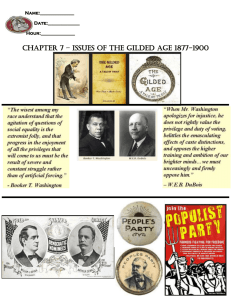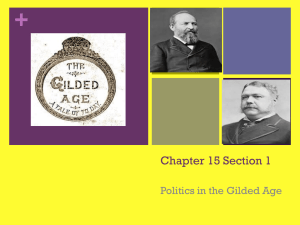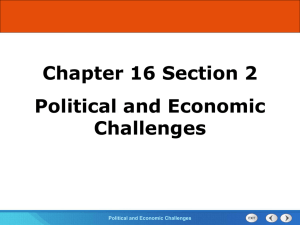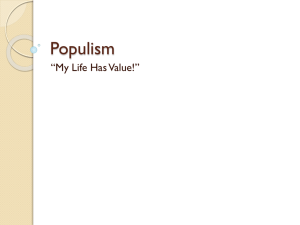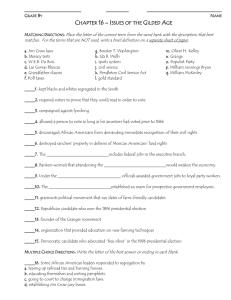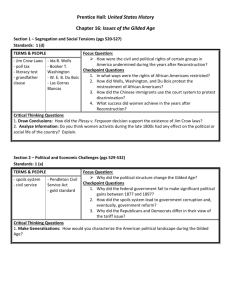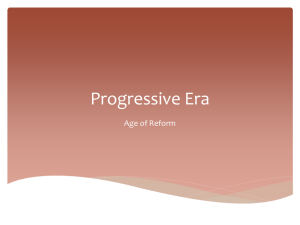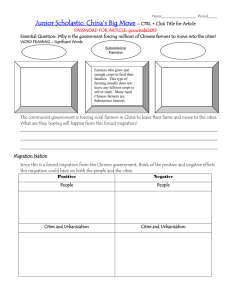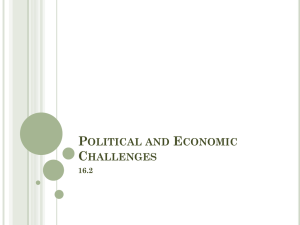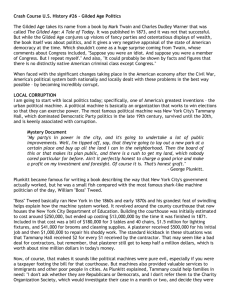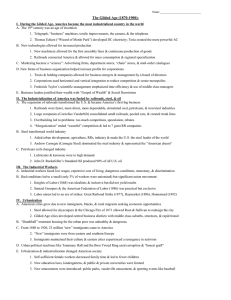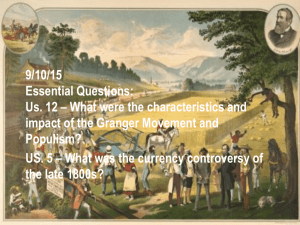Chapter 7 Notes - Twinsburg Schools
advertisement
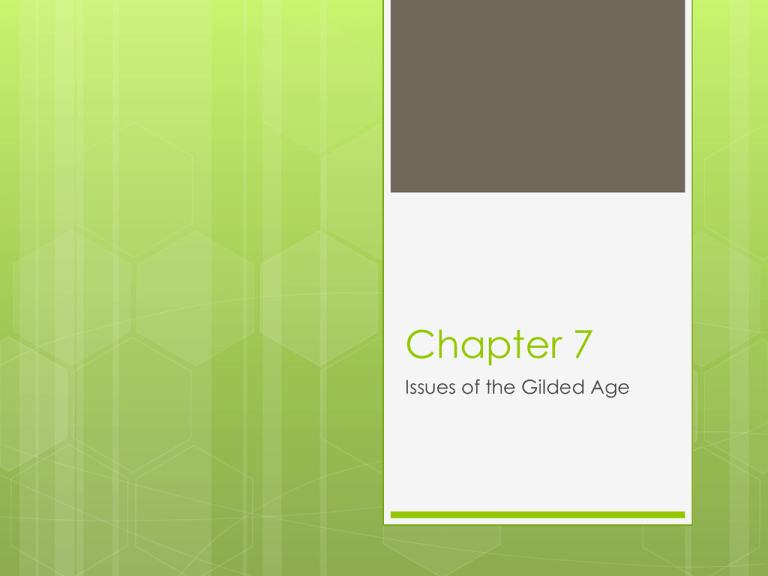
Chapter 7 Issues of the Gilded Age 7.1 Segregation and Social Trends Objectives: Assess how whites created a segregated society in the South and how African Americans responded Analyze efforts to limit immigration and the effects Compare the situations of Mexican Americans and of women to those of other groups African Americans Lose Freedoms Southern states got around the 15th amendment by enacting a poll tax Literacy tests Grandfather clauses Jim Crow laws in South Plessy v. Ferguson 1896 “separate but equal” African Americans Oppose Injustices Booker Should focus energy building up economic resources and establishing reputations Vocational education W.E.B. Du Bois Demand full and immediate equality Ida T. Washington B. Wells Newspaper “Free Speech” Chinese Immigrants Face Discrimination 1879-CA barred cities from employing people of Chinese ancestry “Oriental” School Chinese Exclusion Act-banned Chinese laborers from entering the country Federal courts Yick Wo v. Hopkins –people of Chinese descent born in U.S. could not be stripped of citizenship Mexican Americans Struggle in the West Mexican-American War-after, Mexicans were guaranteed property rights Burden of proof-lost land to Americans Las Gorras Blancas Group formed to get land back Backed by the Knights of Labor Women Make Gains and Suffer Setbacks Susan B. Anthony Wanted women included in 14th and 15th amendments Formed the National Woman Suffrage Association Fought for the right to vote Number of women attending college increased 7.2 Political and Economic Challenges Objectives Analyze the issue of corruption in national politics in the 1870s and 1880s Discuss civil service reform during the 1870s and 1880s Assess the importance of economic issues in the politics of the Gilded Age Balance of Power Creates Stalemate Party loyalties were extremely even Made it hard to pass laws Weak Presidents Hayes, Harrison, Garfield, Arthur Pres. Cleveland was known for integrity Corruption in Politics Many gov. officials accepted bribes Political cartoons expressed concerns about the damaging effects of corruption and big money Spoils System-gov. jobs to loyal party workers Promoted civil service reform Pendleton Civil Service Act: exam to get gov. job Economic Issues Gold standard-gov. used gold as the basis of the nation’s currency Debates on tariffs Republicans-favored high tariffs=promote jobs Democrats-said high tariffs increased costs and made it difficult to sell abroad Create your own! Create a political cartoon for the Gilded age. Any topic from Ch. 6 or 7 Make sure you include Caption description of the drawing Be creative! 7.3 Farmers and Populism Objectives Analyze the problems farmers faced and the groups they formed to address them Assess the goals of the Populists, and explain why they Populist Party did not last Farmers Face Many Problems 1870-1895 Cost more to produce than they could get selling it Tenement farmers Blamed farm prices fell dramatically big business Railroads and banks Felt that gov. turned their back on them Organize and Seek Change Oliver H. Kelley- The Grange: org. to promote education on new techniques and called for the regulation of railroads Farmers’ Alliance Collectively sold crops and wanted government to establish “sub-treasuries” Populist Party The People’s Party 1882 “grass roots” and spread rapidly Goals: fight corruption Increase monetary supply gov. ownership of railroads Economic Crisis and Populism’s Decline Election of 1896-Bryan (D) v. McKinley (R) Bryan “Cross of Gold Speech” Indorsed by Populists McKinley Much more $ than Bryan Won election Party fell apart after election Some reforms did become a reality
